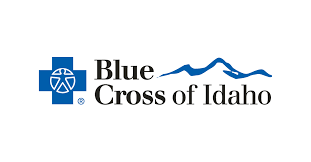HMO Health Insurance In Idaho: Navigating The Benefits Of Managed Care
Are you struggling to navigate through the complex world of health insurance in Idaho? Look no further, because this article is here to guide you through the benefits of managed care, specifically HMO health insurance.
With HMOs, you can take advantage of a range of benefits that ensure you receive quality healthcare while keeping costs under control. From cost containment measures to preventive care services, HMOs offer a comprehensive approach to managing your health.
Contact Us
In this article, we will explore the advantages of HMO health insurance and provide you with valuable information on how to navigate HMO coverage in Idaho. So, whether you're a resident or planning to move to Idaho, buckle up and get ready to discover the benefits that HMO health insurance can offer you.
Understanding HMO Health Insurance
Understanding HMO health insurance involves navigating a sea of benefits and managing your care. HMO, or Health Maintenance Organization, is a type of health insurance plan that offers a wide range of benefits. With an HMO plan, you typically choose a primary care physician who will coordinate all your healthcare needs. This means that you'll need a referral from your primary care doctor to see a specialist.
HMOs often have a network of doctors, hospitals, and other healthcare providers that you must use in order to receive full coverage. This can help keep your costs down and ensure that you receive quality care. It's important to understand the rules and restrictions of your HMO plan, as well as the benefits it offers, so that you can make informed decisions about your healthcare.
The Benefits of Managed Care
Discover the countless advantages of the comprehensive and efficient system designed to prioritize your well-being. With managed care, you can enjoy a wide range of benefits that make navigating your healthcare needs easier than ever before.
- Cost-Effective Healthcare. One of the best things about HMOs is that they save money. HMOs usually have a set monthly premium, and members can use a wide range of health care services without having to pay a lot of money out of pocket. The fixed payment structure motivates people to get preventive care and deal with health problems right away, which can keep them from needing more expensive medical care in the future. HMOs also make it easier for people and families to pay for health care because they share the costs. This makes health care more available to a wider range of people.
- Emphasis on Preventive Care. HMOs put a lot of focus on preventive care, which means they try to find and treat health problems before they get worse. HMOs offer preventive care services like regular checkups, vaccines, screenings, and health education programs. By focusing on prevention, HMOs can help lower the number of people who get long-term illnesses and improve their members' overall health.
- Coordinated and Integrated Care. A managed care model is used by HMOs. This model encourages coordinated and combined health care services. This means that all parts of a patient's care, like general care, specialists, hospitals, and other medical facilities, are well-connected and talk to each other. As a result, healthcare workers work together to make sure that patients get the right treatments at the right time. This makes the patient experience smoother and more efficient. This coordinated method also lowers the chances of medical mistakes and services being done twice when they don't need to be.
- No Need for Referrals. In contrast to other health plans, HMO users don't need a referral from their primary care doctor to see a specialist. This makes it easier for patients to get to experts, which means they can get specialized care faster, which leads to faster diagnoses and treatment plans. By getting rid of the need for referrals, HMOs give patients the freedom to take an active part in their health care and seek specialized help when they need it.
- Predictable Budgeting for Employers. HMOs are often offered as health plans through a workplace. Employers like HMOs because they make it easier to budget for the health care costs of their workers. The fixed monthly premiums and lower out-of-pocket costs make it easier for employers to plan how much they will spend on health care, which makes their total financial strategy more stable.
- Broad Network of Healthcare Providers. Most HMOs have large networks of health care providers that give users access to a wide range of doctors, hospitals, and other medical facilities. This large network is particularly helpful for people who live in cities or rural areas because it makes it more likely that they will be able to find good health services near them. The large network also lets HMO members pick from a wide range of doctors, experts, and medical facilities to meet their own needs.
So, embrace the benefits of managed care and experience a healthcare system that puts your well-being first.
Cost Containment in HMOs
Cost containment in HMOs is achieved through several strategies. Health Maintenance Organizations (HMOs) are becoming more and more popular because they focus on providing affordable health care. In this piece, we'll look at the different ways HMOs try to keep costs down while still making sure their members get good medical care.
- Emphasis on Preventive Care. One of the best ways for HMOs to keep costs down is to put a lot of emphasis on prevention care. By spending money on regular checkups, screenings, vaccines, and health education programs, HMOs can find health problems early and help people right away. Not only does preventive care improve health outcomes, but it also lowers the need for expensive treatments and hospital stays for conditions that could have been avoided. HMOs can stop chronic diseases from getting worse by pushing their members to take care of their health. This will lower long-term healthcare costs.
- Utilization Management. Utilization management is a method that HMOs use to keep track of and control how healthcare services are used. It uses tools like prior authorization, case management, and concurrent review to make sure that medical treatments and procedures are suitable and medically necessary. This process helps stop treatments, diagnostic tests, and hospital stays that aren't needed or are done more than once. This saves the HMO and its clients a lot of money.
- Network Management. HMOs carefully manage their network of doctors and hospitals to keep costs down and keep the level of care high. HMOs can set up good reimbursement rates by making contracts with a small group of providers. This can lead to lower medical costs. Also, network management lets HMOs build strong relationships with healthcare facilities. This makes patient care more organized and reduces the risk of expensive services that aren't covered by the HMO.
- Case Management for Chronic Conditions. Chronic diseases like diabetes, high blood pressure, and asthma can add a lot to the cost of health care. Case management services are used by HMOs to help members with chronic conditions take care of their health better. To avoid flare-ups and complications, these programs offer personalized care plans, regular monitoring, and help from medical professionals. By taking care of chronic conditions in a proactive way, HMOs can reduce hospitalizations and trips to the emergency room, which can save a lot of money on overall healthcare costs.
- Prescription Drug Management. Pharmaceutical costs make up a big chunk of healthcare costs, and HMOs have ways to control prescription drug costs without hurting patient care. This includes formulary management, which means making a list of the best medicines in terms of how well they work and how much they cost. HMOs can also talk to drug companies to get discounts and refunds, which they can then give to their members.
- Health Information Technology. HMOs use health information technology (HIT) to make their services more efficient and cut down on the costs of running them. Electronic health records (EHRs) organize information about patients and make it easy for healthcare workers in a network to access. This makes it easier to coordinate care, cut down on tests that are done twice, and get to medical information faster. HIT also makes it easier to use evidence-based practices and clinical guidelines, which improves the general quality of care and cuts down on procedures and costs that aren't needed.
Overall, these strategies enable HMOs to contain costs and maintain the efficient utilization of healthcare resources.
Preventive Care in HMO Health Insurance
Preventive care is a crucial aspect of maintaining overall well-being and preventing expensive healthcare interventions. With HMO health insurance in Idaho, you have access to a variety of preventive services. These services, such as routine checkups, vaccinations, screenings, and counseling, can help you stay healthy. By utilizing these preventive measures, you can identify potential health issues early and address them before they become more severe and costly to treat.
Regular screenings are essential for detecting conditions like high blood pressure, cholesterol, and diabetes. Early intervention and management can significantly improve outcomes. Vaccinations can protect you from diseases like flu and pneumonia, reducing the likelihood of hospitalization. Additionally, counseling services can provide support for mental health concerns, promoting overall well-being.
With HMO health insurance, you have the opportunity to take proactive steps to maintain your health and avoid expensive medical interventions.
Navigating HMO Coverage in Idaho
As you explore the healthcare landscape in Idaho, imagine confidently navigating the intricacies of your coverage to ensure your well-being is taken care of. When it comes to HMO coverage in Idaho, understanding the benefits and limitations is crucial. With an HMO plan, you'll have access to a network of healthcare professionals that the insurance company has carefully chosen. This means that you'll need to choose a primary care physician (PCP) who will coordinate your care and refer you to specialists when needed.
It's important to familiarize yourself with the network and ensure that your preferred providers are included. Additionally, HMO plans often require pre-authorization for certain procedures or treatments, so it's important to communicate with your PCP and insurance company to avoid unexpected costs. By proactively navigating your HMO coverage, you can make the most of your health insurance benefits in Idaho.
Chris Antrim Insurance Can Help You Navigate Your HMO Health Insurance
In conclusion, navigating the benefits of HMO health insurance in Idaho can be a beneficial choice for you. By understanding the advantages of managed care, such as cost containment and access to preventive care, you can make informed decisions about your healthcare coverage.
Remember to carefully review the details of your HMO plan to ensure you are receiving the best possible benefits. With HMO health insurance, you can confidently navigate your healthcare journey in Idaho. Get the best deal for your health insurance,
get your free quotes at Chris Antrim Insurance.












